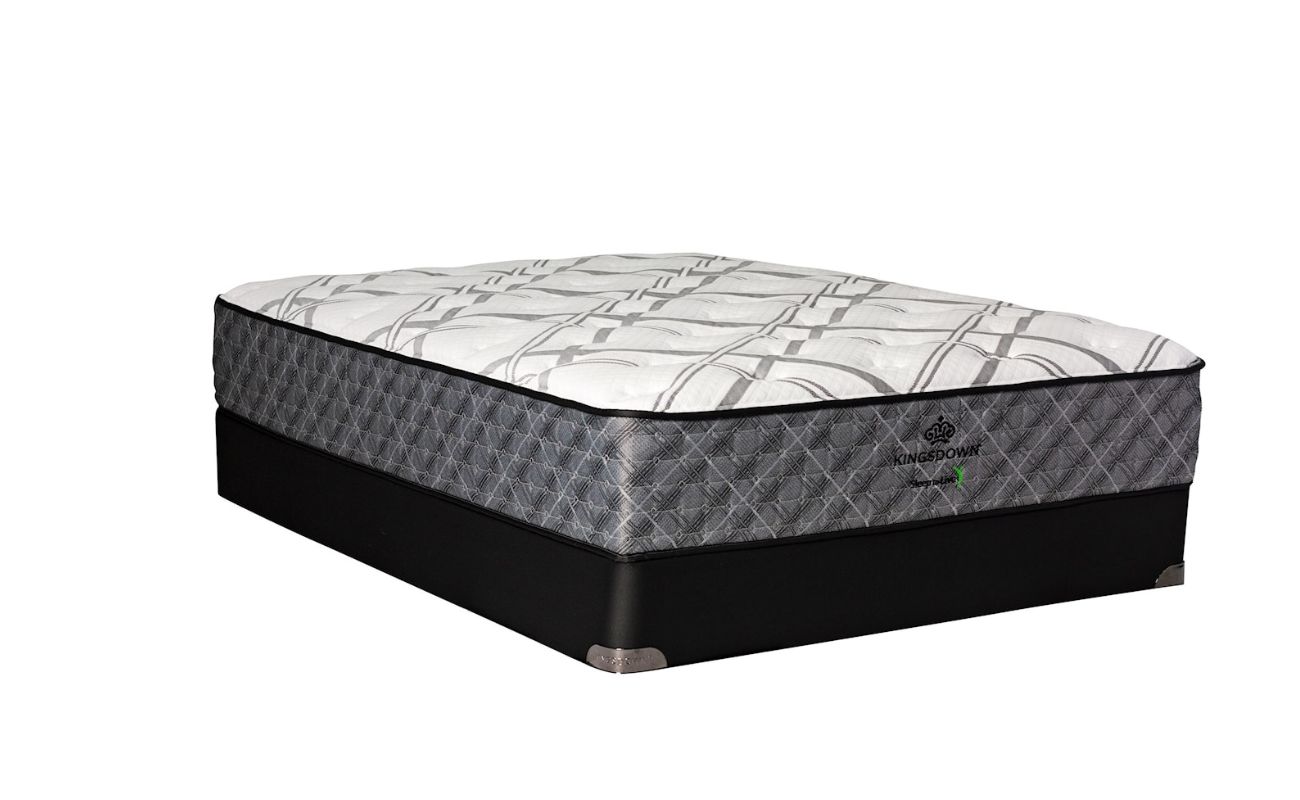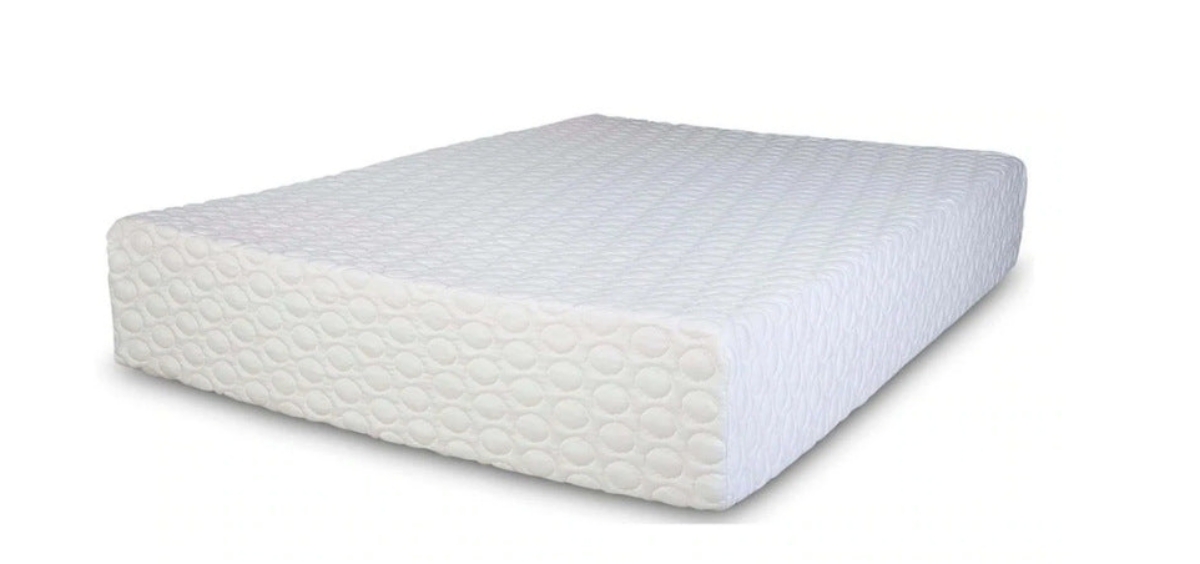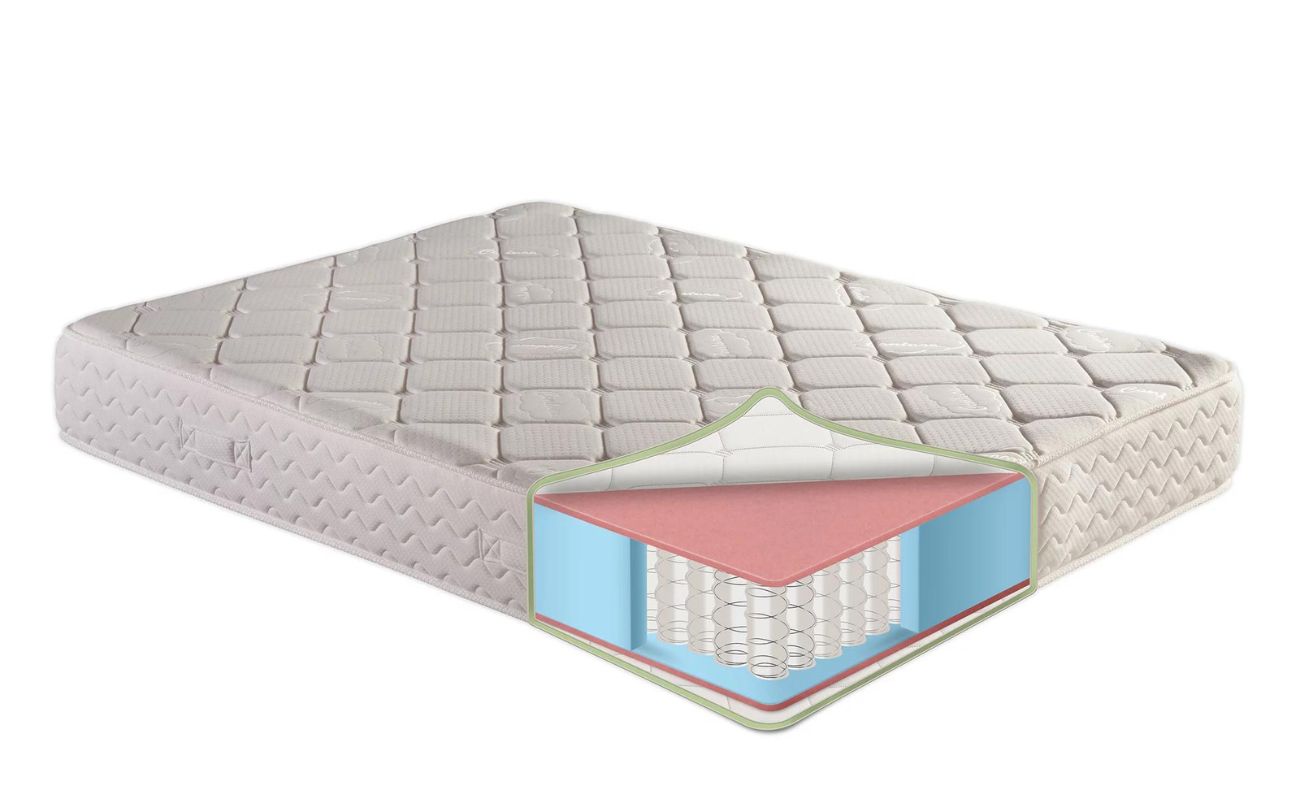Home>Furniture>Bedroom Furniture>How Many Coils Should A King Mattress Have


Bedroom Furniture
How Many Coils Should A King Mattress Have
Modified: February 28, 2024
Discover the optimal number of coils for a king mattress in our comprehensive guide. Upgrade your bedroom furniture with high-quality bedding for a restful sleep.
(Many of the links in this article redirect to a specific reviewed product. Your purchase of these products through affiliate links helps to generate commission for Storables.com, at no extra cost. Learn more)
Introduction
Welcome to the world of bedroom furniture, where comfort and style come together to create the perfect sanctuary for relaxation. When it comes to selecting the right mattress for your king-size bed, one important factor to consider is the number of coils it should have.
Mattress coils are the structural support system that lies beneath the layers of foam or padding. They play a crucial role in determining the level of support, durability, and overall comfort of the mattress. In this article, we will delve into the world of mattress coils and explore how many coils a king mattress should ideally have.
Understanding the different types of mattress coils and their benefits is essential to making an informed decision when purchasing a new mattress. By considering factors such as coil count, gauge, and coil system, you can determine the right level of support and comfort for your needs.
Factors such as body weight, sleep position, and personal preferences can influence your choice of coil count for a king-size mattress. Additionally, different coil systems offer varying levels of support and motion isolation, making it important to select the one that best suits your individual needs.
So, let’s explore the world of mattress coils and discover how many coils a king mattress should have to provide exceptional comfort and support for a restful night’s sleep.
Key Takeaways:
- The ideal coil count for a king-size mattress is a minimum of 1000 coils, providing adequate support and preventing sagging, especially for heavier individuals. Consider factors like body weight, sleep position, and personal preferences when choosing the right coil count.
- Different coil systems, such as bonnell, offset, pocket, and continuous coils, offer unique benefits in terms of support, motion isolation, and durability. Test different mattresses and consider your individual needs to find the perfect coil system for your king-size mattress.
Read more: How Many Coils Should A Queen Mattress Have
Understanding Mattress Coils
Before we dive into the ideal number of coils for a king mattress, let’s gain a better understanding of mattress coils and their role in providing support and comfort. Mattress coils, also known as springs, form the foundation of a mattress and contribute significantly to its overall performance.
There are different types of mattress coils available in the market, each offering its own unique benefits. The most common types are bonnell coils, offset coils, pocket coils, and continuous coils.
Bonnell coils are the traditional coil system and are shaped like an hourglass. They are interconnected and provide a robust support system. However, they may not offer the same level of individualized support and motion isolation as other coil systems.
Offset coils are similar to bonnell coils but with a squared or hinged design. This design helps to contour to the shape of the body and provide targeted support, reducing the pressure points.
Pocket coils, on the other hand, are individually wrapped in fabric pockets, allowing them to move independently. This offers excellent motion isolation, making them a great choice for couples sharing a bed. The individualized support of pocket coils also helps to alleviate pressure points and promote proper spinal alignment.
Continuous coils are made from a single wire that runs in a continuous pattern throughout the mattress. This design provides better support and durability compared to traditional spring systems.
When it comes to coil count, the number of coils in a mattress can vary. A higher coil count typically translates to better support and more precise contouring to the body’s shape. However, it’s important to note that coil count is just one factor to consider, and other factors such as coil gauge, mattress thickness, and overall quality also play a significant role in determining the comfort and support levels of a mattress.
Now that we have a better understanding of mattress coils, let’s explore the factors to consider when deciding on the ideal coil count for a king-size mattress.
Factors to Consider
When determining the ideal number of coils for a king-size mattress, there are several factors to take into consideration. These factors will help you find the right balance between comfort, support, and durability.
1. Body Weight: Your body weight plays a crucial role in determining the level of support you need from your mattress. Heavier individuals may benefit from a higher coil count to ensure proper support and prevent mattress sagging over time.
2. Sleep Position: Your preferred sleep position also affects the amount of support your body requires. For instance, side sleepers generally need a mattress that can contour to their body curves to alleviate pressure points, while back and stomach sleepers may require a firmer surface for optimal spinal alignment.
3. Personal Preferences: Everyone has unique comfort preferences. Some individuals prefer a plush, soft mattress, while others prefer a firmer feel. Your personal preferences will guide you in selecting a coil count that provides the desired level of comfort and support.
4. Coil Gauge: Coil gauge refers to the thickness of the wire used in the mattress coils. A lower gauge number indicates a thicker wire, resulting in a firmer mattress. Conversely, a higher gauge number means a thinner wire and a softer feel. Consider your personal preferences and body weight when choosing the appropriate coil gauge for your king-size mattress.
5. Budget: Your budget may also influence your decision. Higher coil counts and more advanced coil systems tend to increase the price of the mattress. Determine your budget and look for mattresses that offer a good balance between coil count and overall quality within your price range.
By considering these factors, you can narrow down your options and find the ideal coil count for your king-size mattress. However, it’s important to remember that there is no one-size-fits-all answer, and personal comfort preferences should ultimately guide your decision.
Next, let’s explore the recommended coil count for king-size mattresses to help you make an informed choice.
Coils for King Size Mattresses
When it comes to choosing the right coil count for a king-size mattress, it’s important to consider the size and dimensions of the mattress. King-size mattresses are larger than standard sizes, measuring approximately 76 inches wide by 80 inches long. The larger surface area means that they require a higher coil count to provide adequate support and prevent sagging.
While coil count can vary significantly depending on the manufacturer and the specific model, a general guideline for king-size mattresses is to aim for a minimum coil count of 1000 or more. This ensures that the mattress has sufficient springs to distribute your body weight evenly and provide optimal support.
Keep in mind that higher-end models may have a coil count of 1500 or even more, offering enhanced support and durability. However, it’s important to note that coil count alone does not determine the quality of the mattress. The type of coils, coil gauge, and overall construction also play a crucial role in determining the performance and comfort level.
Additionally, some manufacturers offer variations in the coil count for different models within the same size category. For instance, they may offer a standard king-size mattress with a lower coil count and a luxury king-size mattress with a higher coil count for added support and comfort.
Ultimately, the goal is to find a king-size mattress with a coil count that meets your individual needs and preferences. It’s important to test the mattress in person, if possible, to ensure that it provides the right level of support and comfort for your body type and sleep preferences.
Now that we have discussed the recommended coil count for king-size mattresses, let’s explore the benefits of different coil systems to help you make a more informed decision.
A king mattress should ideally have at least 1000 coils for adequate support and comfort. However, the exact number can vary based on the type and quality of the coils used.
Optimal Coil Count for King Size Mattresses
While there is no one-size-fits-all answer to the optimal coil count for a king-size mattress, there are some general guidelines to consider. The ideal coil count will depend on factors such as the type of coils used, coil gauge, and personal preferences.
As mentioned earlier, a minimum coil count of 1000 or more is recommended for a king-size mattress. This ensures that there are enough springs to provide support and prevent sagging, particularly for individuals with heavier body weight.
However, it’s important to note that a higher coil count does not always translate to better quality. The type of coils and the overall construction of the mattress also play a significant role in determining its performance and comfort.
When it comes to choosing the optimal coil count, it’s essential to consider the type of coils and their benefits. For example, pocket coil systems offer excellent motion isolation and targeted support, making them popular among couples and individuals who prefer minimal disturbance from their partner’s movements. These systems often have a higher coil count to provide better individualized support.
On the other hand, continuous coil systems, which consist of a single wire in a continuous pattern, provide better overall support and durability. While they may have a lower coil count compared to pocket coils, their continuous design evenly distributes weight and reduces motion transfer.
Ultimately, the optimal coil count for your king-size mattress will depend on factors such as your body weight, sleep position, personal preferences, and budget. Consider testing the mattress in person, if possible, to ensure that it provides the right balance of support, comfort, and motion isolation for your needs.
Now that we have explored the optimal coil count for king-size mattresses, let’s delve into the benefits of different coil systems to help you make a more informed decision.
Read more: How Many Vents Should A Roof Have
Benefits of Different Coil Systems
When it comes to selecting a mattress with the right coil system for your king-size bed, it’s important to understand the benefits that each type offers. Different coil systems provide varying levels of support, motion isolation, and durability, catering to individual needs and preferences. Let’s explore the advantages of some popular coil systems:
1. Bonnell Coils: Bonnell coils, with their hourglass shape and interconnectivity, offer a sturdy and traditional support system. They provide a good level of support and durability, making them a reliable choice for those seeking a more affordable mattress option. However, bonnell coils may not offer as much motion isolation or targeted support for specific pressure points.
2. Offset Coils: Offset coils are similar to bonnell coils in shape but have a square or hinged design. This design allows for improved contouring to the body’s shape, providing better support and reducing pressure points. Offset coils are a great choice for individuals who prefer a balance between support and comfort without compromising on motion isolation.
3. Pocket Coils: Pocket coils, also known as individually wrapped coils, provide excellent motion isolation and targeted support. Each coil is wrapped in its fabric pocket, allowing them to move independently of one another. This independent movement reduces motion transfer, making pocket coils ideal for couples sharing a bed. Additionally, the individualized support of pocket coils helps to alleviate pressure points and promote proper spinal alignment.
4. Continuous Coils: Continuous coils are made from a single wire in a continuous pattern, offering better support and durability compared to traditional spring systems. They evenly distribute weight across the mattress, reducing the risk of sagging and providing consistent support. Continuous coil systems are a good choice for individuals who prioritize overall support and durability.
Each coil system offers unique advantages, and the right choice depends on your personal preferences and specific sleep needs. It’s important to test different mattresses with different coil systems to determine which one provides the comfort, support, and motion isolation that aligns with your requirements.
Now that we have explored the benefits of different coil systems, let’s wrap up our discussion on selecting the ideal coil count for a king-size mattress.
Conclusion
When it comes to selecting the right mattress for your king-size bed, considering the number of coils is an essential factor. While there is no one-size-fits-all answer to the optimal coil count, there are guidelines that can help you make an informed decision.
For a king-size mattress, a minimum coil count of 1000 or more is generally recommended. This ensures that the mattress has adequate support and prevents sagging, especially for individuals with heavier body weight.
However, it’s important to remember that coil count is just one aspect to consider. The type of coils, coil gauge, and overall construction of the mattress also contribute to its performance and comfort.
Factors such as body weight, sleep position, personal preferences, and budget should influence your decision. It’s crucial to test the mattress in person, if possible, to ensure that it provides the right level of support, comfort, and motion isolation for a restful night’s sleep.
Different coil systems, such as bonnell coils, offset coils, pocket coils, and continuous coils, offer various benefits in terms of support, motion isolation, and durability. Understanding these benefits can help you choose the right coil system for your specific needs.
In conclusion, selecting the optimal coil count for a king-size mattress involves considering various factors and finding the right balance between support, comfort, and personal preferences. By taking the time to do your research, test different mattresses, and consider your individual needs, you can find the perfect mattress with the right coil count to create an oasis of comfort and relaxation in your bedroom.
Frequently Asked Questions about How Many Coils Should A King Mattress Have
Was this page helpful?
At Storables.com, we guarantee accurate and reliable information. Our content, validated by Expert Board Contributors, is crafted following stringent Editorial Policies. We're committed to providing you with well-researched, expert-backed insights for all your informational needs.














